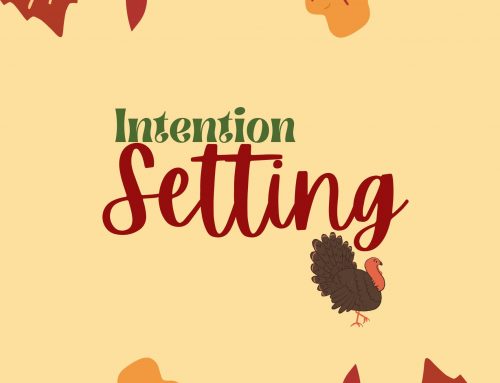THAT OLD TUG-OF-WAR THAT EXISTS IN MANY OF US
So here’s the scenario: Sarah is at work, looking forward to the weekend, when she gets an email from her boss criticizing some aspect of a recent assignment she completed. The truth is, there were a very few mistakes made, and not all of them were her fault. There are a couple of ways she is likely to answer that email. Which do you think is the more correct one?
- Sarah’s knee-jerk.reaction is to fire off an angry reply, defending herself and pointing out that part of the blame really belongs to her boss, whose latest email is just part of a pattern of unfair behavior toward her. This leads to a series of back-and-forth grievances and justifications, leading to a strained working relationship between the two.
- Sarah takes a few deep breaths after reading her boss’s email. She takes some time to digest the feedback and consider her own performance and her boss’s perspective. She considers where her boss has a point, and what blind spots her boss has yet to consider. She gets up, stretches her legs and has a drink of water. Then she calmly drafts a professional, thoughtful response acknowledging the criticism and discussing ways to improve her work as well as ways to improve their overall working relationship.
Between the two choices, what should Sarah do?
Well, I think most people would agree that the second choice, Responding, is obviously preferable to the first.
RESPONDING—INSTEAD OF REACTING—IS A CRUCIAL ASPECT OF EFFECTIVE DECISION-MAKING
We have been hearing the term “triggering” a lot lately. When any of us is faced with a stressful situation, it is only natural for our first instinct to be triggered by a variety of emotions. And to respond driven only by those emotions is what we mean by Reacting.
However, by pausing, assessing the situation, and following up thoughtfully, we can achieve better outcomes. That is what we mean by Responding. Clear-headed decision making leads to more informed and rational choices, improved relationships, and overall reduced stress. Because, hey: measured emotional intelligence and applied self-regulation will beat unthinking impulsiveness every time.
MINDFULNESS, AGAIN!
Anyone who even casually follows my blog or has read my book, Why Did I Just Eat That? knows that I frequently champion mindfulness, and in explaining why responding is better than reacting, mindfulness plays a big part.
Here’s how it works in Sarah’s situation:
When Sarah receives the negative email from her boss, her first gut reaction might very well be, “Screw you, Boss!” But if Sarah reacts mindfully, she’ll realize that she is simply having an emotional reaction. Moreover, she’ll understand that she is entitled to her emotional reaction. So she’ll allow herself to feel what she feels, and then take a little bit of time to let the initial feelings pass. Then, when her thoughts are not distracted by any upset feelings, her awareness is freer to assess the facts with as much clarity as she can call to the situation. After assessing the facts as she understands them, she can choose her action steps in rational, constructive ways. Over time, practicing mindfulness and self-control in such situations will help Sarah develop increased emotional maturity and resilience in her day-to-day life.
SOME STRATEGIES
Of course, maintaining composure during emotional moments is easier said than done. To prevent impulsive reactions, there are strategies that many people find effective, such as:
Taking a moment to draw in a few deep breaths to calm down and gather thoughts.
Reflecting on potential consequences and alternative perspectives before responding in a given situation.
Using grounding approaches like the 5-4-3-2-1 technique (identifying 5 things you see, 4 things you touch, 3 things you hear, 2 things you smell, and 1 thing you taste) to anchor yourself in the present moment and not spin off into catastrophic “what if” fantasies.
RESPONDING VS REACTING AND THE QUESTION OF COMFORT FOOD
Not surprisingly, The dynamics of responding vs reacting play a significant role when it comes to one’s relationship with food.
As I discuss in my book, reacting to food often involves making impulsive decisions based on emotions or external factors. These include using food to seek comfort through stress eating and/or binge eating. Overeating in social situations and eating just because you see food in front . This can contribute to an unhealthy relationship with food and may lead to feelings of guilt, shame, or frustration.
On the other hand, responding to food means taking a moment to assess one’s hunger, emotions, and the nutritional value of the food before deciding what and how much to eat. This approach encourages self-awareness, calls upon our ability to listen to our body’s intuition (and hunger/fullness cues,) and ultimately supports our ability to enjoy food without feeling controlled by it.
SOME WAYS TO AVOID REACTING TO FOOD DUE TO EMOTION-TRIGGERS
Through mindfulness, become emotionally aware: Learn to identify your emotions and recognize instances when you’re using food as a coping mechanism. Journaling, meditation, or therapy can help you develop this awareness.
Using a Mood/Food diary can be very helpful in learning about your emotion-triggers: Before eating, a mood/food diary reminds you to take a moment to pause and reflect on your feelings, your hunger level, and the reasons behind your desire to eat.
Embrace non-food coping mechanisms: Develop a list of alternative coping mechanisms for when you feel triggered, such as going for a walk, calling a friend, or engaging in a hobby. Being prepared with a range of options can help you avoid turning to food for comfort.
Self-soothing techniques: Practice self-soothing techniques like deep breathing exercises, progressive muscle relaxation, or gentle stretching to help calm yourself down when you’re feeling overwhelmed by emotions.
Mindful eating: Make it a way of life to engage in mindful eating by fully focusing on your food; savoring each bite, and appreciating the flavors, textures, and aromas. This can help you develop a more beneficial and satisfying relationship with food.
And most importantly:
Practice self-compassion: Treat yourself with kindness and understanding… especially when you find yourself frustrated with your own reactions.





